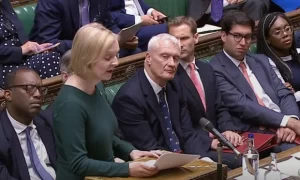
Liz Truss was sworn into Premiership on the 5th September and it has undoubtedly, been one of the busiest first few days of any prime minister’s career.
On the 8th September, it was sadly announced that The Queen had died peacefully at her Balmoral estate.
A period of mourning was declared and it has been confirmed that The Queen’s funeral (Monday 19th September) will be a public holiday (at businesses discretion on whether to close). While the nation mourns, Truss and her newly assembled cabinet will be working feverishly to try to mitigate the potentially devastating bills that households and businesses are facing right now, and the ever-rising costs over winter and Christmas.
There was much speculation after the announcement of The Queen’s death if parliament itself would close – with some predicting that it would not sit again until the 17th October. This of course sparked panic, as not even a few hours before Truss announced the first of her government’s planned initiatives to ease the burden of increasing bills – with an energy cap freeze of £2,500 for household bills. As the Ofgem price cap would have come into effect on the 1st October, this would have been too late for Truss to implement her proposed energy cap freeze. The spokesperson for the cabinet mitigated fears quickly however by confirming that the energy price cap freeze would go ahead, whether or not the period of mourning halted other parliamentary procedures. On Friday 9th September, businesses closed out of respect, unions postponed events, and The Bank of England even delayed meetings – to much surprise.
Already in her premiership, Truss has made sweeping changes to government and the civil service with a run of sackings and appointments that have not always garnered the best reaction. She has started the process to lift the ban on fracking, and made a firm commitment to her previous stance on not raising taxes. However, whether or not these radical changes will bear fruit has yet to be seen.
The unprecedented blows that the UK has experienced in the last few years – Covid, Brexit, climate change, and now the passing of The Queen – have shocked the public and the economy, and business owners and leaders will be looking for a lifeline.
So far, there have been no new announcements from the government or the prime minister’s office on legislation specifically pertaining to helping businesses. The energy price cap freeze while would include businesses, would only cover them for six months. During this period of mourning, the government is in recess for the next week, and so we have yet to hear anything about the other policies on which Truss is said to be considering – specifically, the plans to abandon the scheduled increase in corporation tax, the slash to National Insurance increase that was introduced in April 2022, and what changes to the business rates tax system could occur.
Despite being in recess, a briefing was held by Downing Street on the 12th September outlining what government would do in the meantime. This included the announcement of a ‘fiscal statement’ next week to be presented by the Chancellor, Kwasi Kwarteng. In effect, this is could be seen as the emergency budget that business owners and leaders have been hoping for.
Read more:
Seven days in office: What has PM Truss achieved for businesses?





